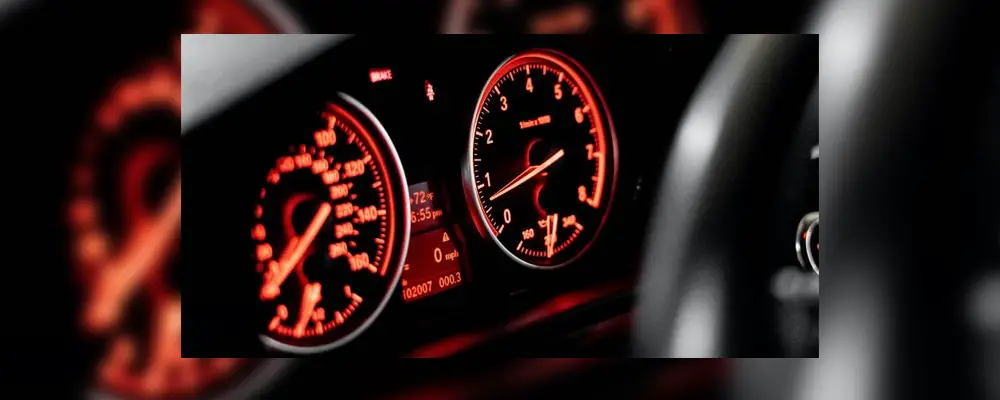Have you experienced seeing your RPM going up and down without your foot on the gas pedal? You can feel the fear rising, especially if you are on a freeway. What causes the RPM going up and down at idle and how to deal with rough idle RPM?
Let us learn more about sudden changes in idle speed. And find out how to prepare our cars when the idle speed changes.
What Is Revolutions Per Minute (RPM)?
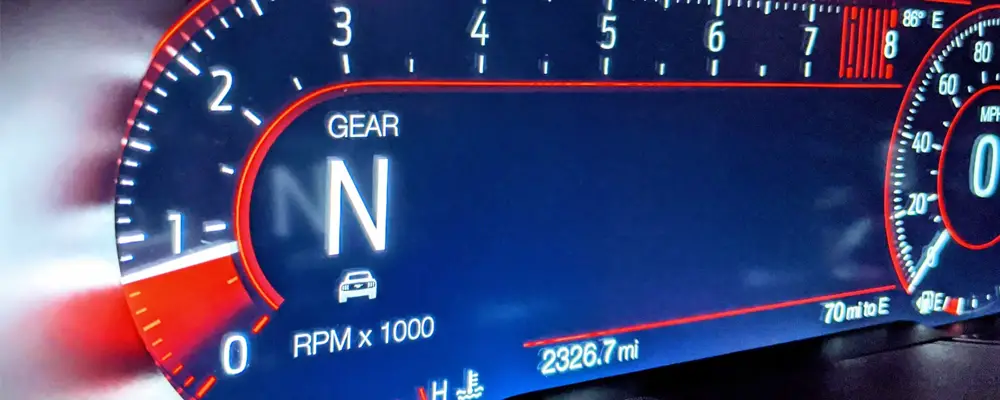
RPM or revolutions per minute is how your car’s machine speed is measured. One thing to make certain is to see that it returns to idle RPM. It changes as soon as the ignition coils are ignited.
Technically, it measures the number of times the crankshaft of an engine makes in a complete rotation. Cars that are for racing have higher RPM. However, these also consume more fuel.
However, its performance can be affected by many factors. When parts like air filter, spark plugs, torque converter, and more, become faulty, your RPM is placed at risk.
RPM Going Up & Down At Idle: What Does It Mean?
When your RPM goes up and down at idle, that only means something is wrong with your vehicle. The unfortunate part about this is that you cannot easily pinpoint what causes the car RPM concern.
You can start looking for an air leak a vacuum leak at the IAC valve. The engine RPM will be placed at rough idle for this. Defective spark plugs can cause problems with engine RPM, and so with a defective air filter.
An automatic transmission has a little edge as these vehicles have a “mind” of their own. The check engine light warning turns on when issues arise.
12 Possible Causes

1. Air Leak In The Intake Channel
Check if the load on the turbo is increasing or your car system is not getting the proper boost pressure. The air flow may be jeopardized because of a leak.
You will notice engine backfiring or overheating, among other symptoms. It can lead to the RPM going up and down at idle. It is best to have it fixed to ensure your idle RPM is stable at all times.
2. Dirty Throttle Body
An engine’s RPM is related greatly to your vehicle’s throttle body. It is an important part of the air intake system. The car can still run with a dirty throttle body, though.
However, it may have problems accelerating. It is risky to drive your vehicle when you are constantly experiencing this. RPM issues often start with a clogged throttle.
3. Bad Idle Speed Control (ISC) Actuator
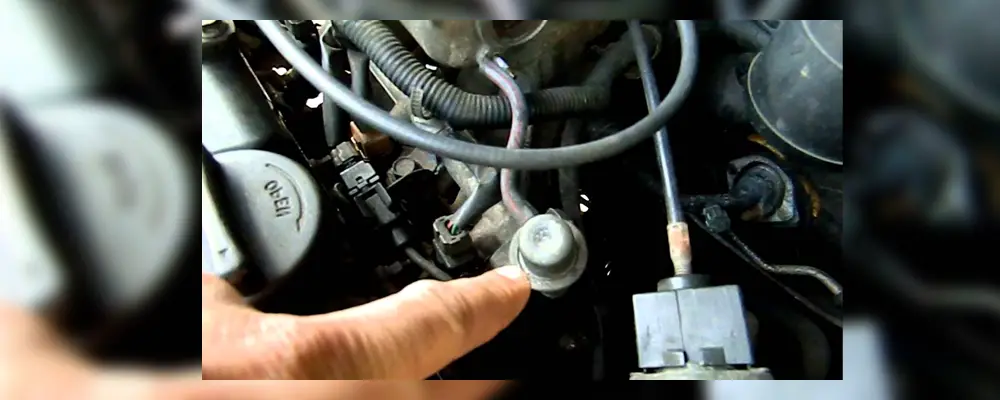
The Idle Speed Control Actuator (ISC) regulates the engine’s speed. It is an essential part of the idle-speed control system. A defective ISC can cause rough idle, leaving your vehicle’s engine stalling while you are driving.
Your car’s RPM also tends not to go on idle at all. The engine will show problems is starting up, which will require a visit to the technician.
4. Problem in the Air Conditioner (AC) System
Your car’s air conditioning system is associated with the idle control valve. It adjusts the air flow that goes inside the throttle body. The control valve also regulates the engine RPM.
The air conditioning puts more load on the engine when it is on. If the air conditioner has a problem, it will also affect the idle speed.
5. Vacuum Leaks
Vacuum leak affects the engine idle speed because of the misfire result of bad idle air control. The hose that delivers fuel and air towards the internal combustion chamber (2) is jeopardized when it leaks.
Defective worn-out or loose hose causes rough idling. Another possible case apart from rough idle is your car’s RPM higher than normal. It would be best to have the hose checked and replace it if deemed defective.
6. EGR System Malfunctions
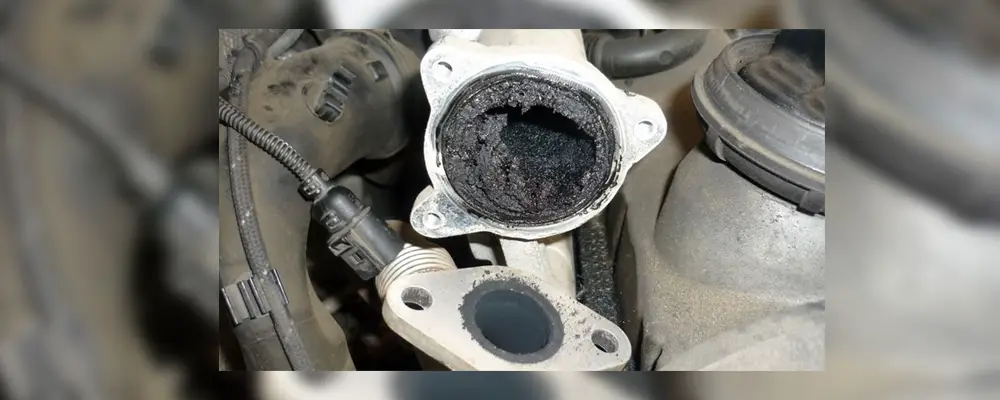
Exhaust gas recirculation (EGR) is designed to control NOx emission on engines. It recirculates the emission to the combustion chambers instead of sending it outwards. If the EGR valves fail to function properly, they can build up foreign particles.
Like a clogged fuel filter, it will get stuck to an open or closed setup. A failing EGR valve will affect the performance of the entire car’s engine. As a result, it will cause an idle air control valve.
Related Posts:
- Why Does My Car Overheat When AC is On?
- What Does Check Fuel Cap Mean?
- Why Do I Hear Squeaking Noises While Driving Without Brakes?
- How Do I Delete Bluetooth Devices From 2016 Honda Civic?
- Why Does My Car Jerk When Shifting From P to D?
7. Malfunctioning Oxygen Sensors
Oxygen sensors (1) or O2 monitors unburned oxygen in the exhaust as it exits the engine. It would sound like it is idling rough if you have a failing oxygen sensor. It will affect the flow of your vehicle’s engine.
The interval of the combustion chambers is affected, the RPM fluctuates, and you will find your car stalling or having slow acceleration. The incoming air and what exits should be smooth-flowing at all times.
8. Dirty Fuel Injectors
The fuel injection system of your car is responsible for the distribution of fuel to the combustion chambers. Apart from making sure you have enough fuel, keeping it clean is necessary.
You should regularly clean fuel-injected engines or add gas additives to the fuel. If it gets clogged up. Most engines will have slow acceleration and are idling rough. Clogged up fuel injection system also displays a decrease in mileage, and the RPM fluctuates.
9. Faulty Mass Airflow Sensor
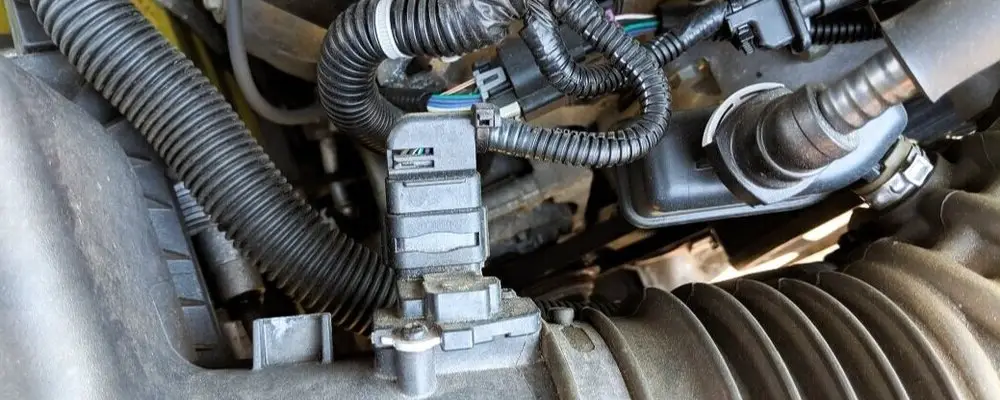
An RPM going up and down at idle can also be because of a defective Mass Airflow Sensor (MAS). It measures the rate of airflow in your fuel injection engine. If MAS is faulty, a couple of negative results will manifest.
Your RPM needle will nosedive and idle rough. The worst case is its effect on your engine’s functionality. It can cause stalling, and you can sense the car shakes as it hesitates to accelerate.
10. Fuel Pump Malfunction
A fuel pump malfunction can be an underlying problem when a car has RPM going sideways when idle. The common symptoms of a damaged fuel pump are the whining on your tank and the engine’s inability to work properly.
No matter how much fuel you put in the tank, it will not flow through the throttle valve to the cylinders. It will cause rough idle, or worst, your car will not even start.
11. Faulty Throttle Position Sensor
The throttle position valve also plays a vital role in ensuring your vehicle is functioning well. It measures the entrance of the throttle valve and controls the air that flows to the engine’s intake manifold.
If the throttle is stuck open, the vehicle will be getting too much air. Because of that, the car will either have to fluctuate idle, rough idle, or slow idle. These situations are very dangerous, especially if you are on the road.
12. Faulty Spark Plugs
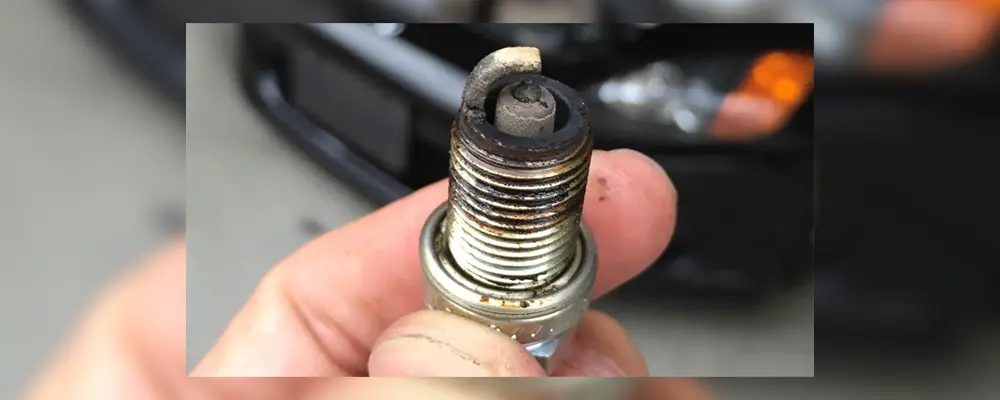
As small as it can be, a spark plug holds a very important role in your vehicle’s performance. Having a faulty spark plug will lead to a lot of negative results. It practically runs the ignition chamber that makes the vehicle run.
If it fails to work, you are off to a cold start. The spark plug wires will not be able to ignite the engine RPM. It will also lead to high fuel consumption of your vehicle.
Questions From Carowners
Should a mechanic fix your car if its RPM goes up and down at idle?
Yes. A mechanic should fix your car if its RPM goes up and down at idle. There are many possible causes of this problem, from a hissing sound to the car’s shakes. You should get an expert’s help to ensure the problem is solved properly.
Will your car shake if its RPM goes up and down at idle?
Yes, your car shakes if its RPM goes up and down at idle. However, pointing out the cause will not be easy. It can be that the vehicle’s ECU has gone bad and damaged the engine causing it to shake. It can also be a different faulty car part distinguished by a mechanic’s scan tool.
Key Takeaways
If you see your RPM going up and down at idle, it is better to treat it seriously. The source of this type of problem is not very easy to pinpoint. It can be worn-out parts or fried spark plugs that cause rough idling and engine problems.
It may have started with the wrong engine temperature, which affected the engine speed and caused your vehicle to have a rough idle RPM. You should not take a risk when your vehicle starts having low RPMs. Have a mechanic check it to ensure your safety.
Thank you for reading this far! I hope that the information provided in this article will be helpful to you.
References:
- https://www.sciencedirect.com/science/article/abs/pii/0250687488800581
- https://www.grc.nasa.gov/www/k-12/airplane/comchamber.html

Robert Anderson is a world class motorhead who rebuilt his first carb at age 10, his first engine at age 15, and completed his first full hotrod build when he was just 18! Previously, he has ran a part warehouse, delivered pizzas, and managed the service department for a $20 million/year revenue dealership. Robert knows cars like few others and he is passionate about sharing his knowledge.

